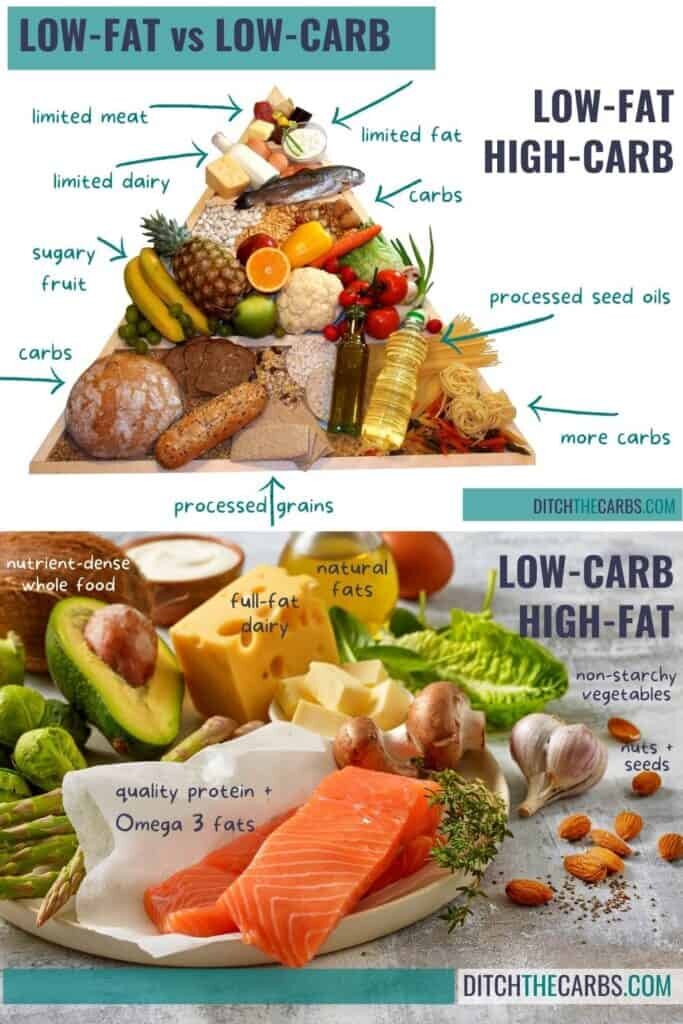Don't Think Fat vs. Carbs vs. Protein; It's Good vs. Bad Fat, Carbs and Protein
Anything that tears people away from sugar is likely to be a dietary improvement. But lowfat vs. lowcarb, or how much protein you eat is not the key to health and weight loss. Whether you are eating good or bad fat, good or bad carbs and good or bad protein—along with when you eat—are much more powerful in affecting health and weight loss. One of the better dietary randomized controlled trials made that point. See “Why a Low-Insulin-Index Diet Isn't Exactly a 'Lowcarb' Diet.”
Good vs. Bad Fats. Distinguishing good from bad fats is the easiest: avoid transfats. These mainly appear in highly processed food, so avoiding processed food should take care of it, but that includes avoiding processed oils that say they are “hydrogenated.” Stick with oils that are the same chemically as when they came from a plant or animal.
I should say that some people think saturated fats are bad and the monounsaturated fats are the healthiest. There is certainly no harm in emphasizing monounsaturated fats in, say, olive oil and avocadoes.
Good vs. Bad Carbs. The bad carbs are sugar and easily digestible starches such as those in potatoes or rice. The number one key to avoiding bad carbs is to go off sugar. I have tips for going off sugar in “Letting Go of Sugar.” As a great ancillary benefit, if you go off sugar, you will be avoiding almost all processed foods, which almost all have sugar plus other bad things.
While sugar is the big bad among carbs, some starches can be digested into sugar quite quickly. So I advise going off sugar, bread, rice and potatoes.
What are the good carbs? You may not even think of them as carbs, but technically they are: nonstarchy vegetables. Here is a list of nonstarchy vegetables from Wikipedia:
Alfalfa sprouts
Beans (green, Italian, yellow or wax)
Greens (beet or collard greens, dandelion, kale, mustard, turnip)
What about fruit? Well, fruit juice, like sugary soft drinks, are like mainlining sugar. Whole fruits also have sugar, but at least they buffer the sugar with fiber. In principle, fruit can be quite healthy, but you would ideally want heirloom varieties with less sugar in them. See “Nutritionally, Not All Apple Varieties Are Alike.” The bottom line on whole fruit is that (a) it isn’t a freebie, (b) you should choose less sugary varieties of fruit and (c) if the only sugar you are getting is from whole fruit you are doing a lot better than most people. “Forget Calorie Counting; It's the Insulin Index, Stupid” rates various fruits according to how bad their insulin kick is.
Good vs. Bad Proteins. I’m sure there is more to be said about good vs. bad proteins than this, but a simple rule of thumb is that animal protein is likely to aid and abet cancer, while plant protein is less dangerous in this respect. You shouldn’t overdo any kind of protein. Protein has such a good, overhyped reputation that you might be led to the mistake of overdoing protein. You can see many links about anti-cancer eating and about issues with meat and milk in particular in “Miles Kimball on Diet and Health: A Reader's Guide.” One to start with is “Meat Is Amazingly Nutritious—But Is It Amazingly Nutritious for Cancer Cells, Too?” Let me be clear that the problem with meat and milk is not the fat in them; the fat is fine. (See “Whole Milk Is Healthy; Skim Milk Less So” on this for milk.) The problem meat and milk both have is the animal protein in them. Milk also has some other distinct issues that can be addressed by getting the right kind of milk. (Technically, this is an issue of exceptionally bad protein vs. typical animal protein issue.) On that, see:
When to Eat. On when to eat, a good place to start is “Stop Counting Calories; It's the Clock that Counts.” Then I have a lot of links related to fasting in “Miles Kimball on Diet and Health: A Reader's Guide.”
Nonsugar Sweeteners. In addition to what actual food you eat, it matters which nonsugar sweeteners are in the products you consume. On that, see “Which Nonsugar Sweeteners are OK? An Insulin-Index Perspective.”
The insulin-index perspective is very valuable much more generally. The post I mentioned above, ““Forget Calorie Counting; It's the Insulin Index, Stupid,” is the place to start to wrap your head around that perspective.
